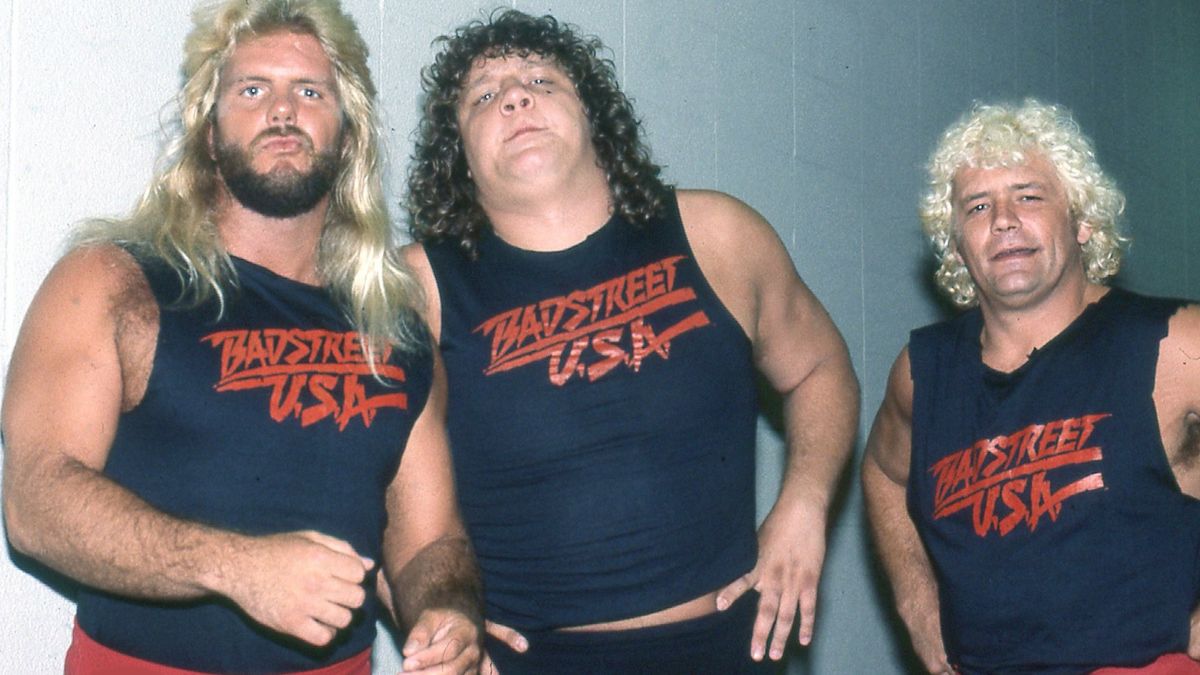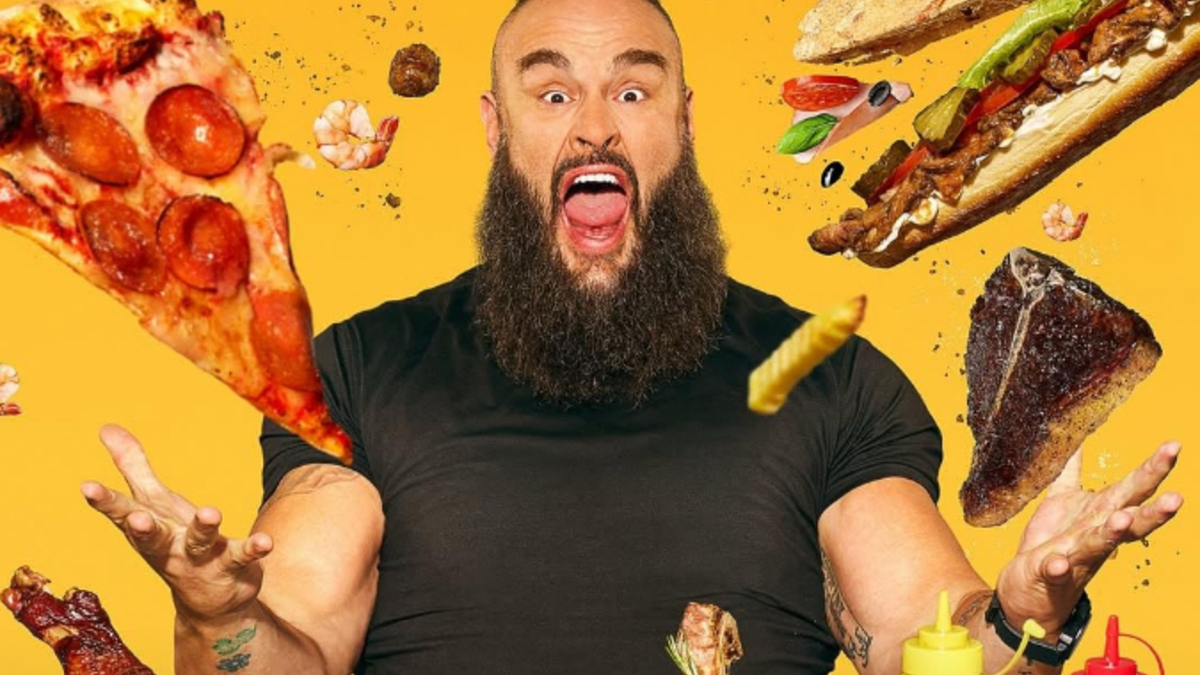Terry Gordy missed even more after a sad ‘Dark Side’
The hard thing about the Dark Side of the Ring episodes where the subject is gone is that we have to relive the loss yet again, but this time with loved ones along for the ride.
That certainly describes “Terry Gordy: Final Flight of the Freebird”, which debuted on March 19.
We all know that Gordy died at the age of 40 from heart failure caused by a blood clot, and that it was the years of physical abuse that led up to that moment.
But revisiting that sad day in July 2001 alongside his son, Ray Gordy (who was Jesse and Slam Master J in WWE), daughter Miranda Gordy, and nephew, Richard Aslinger, who wrestled as Richard Slinger, is double tough. (Another daughter, Amber, was not shown or mentioned.)
A big part of me hopes that Dark Side releases an accompanying video, as they have been doing, just of Ray and Miranda flipping through the photo albums.
It’s the same where I will chose to remember the Terry Gordy I watched and loved in his prime rather than the broken husk of a man that was around near the end, after he fell into a coma following an overdose on a flight.
Dark Side started and finished with Miranda’s on-going wrestling career, an entry to the big boots she is trying to fill. “They expect me to be just as good as him, but that’s just not the case,” she said.
Ray, on the other hand, long retired from wrestling, chose not to use Gordy as a last name in the ring. “I didn’t feel I could live up to it,” he said.
After all, Terry Gordy had begun wrestling when he was 14, and Jim Cornette used words like “prodigy” and “natural” — and it fit.
There was next to nothing about Gordy’s upbringing, just that he went into the ring. We raced through those early days, then meeting Michael Hayes — notably absent as a talking head — and the creation of the Fabulous Freebirds as a duo, and then Buddy “Jack” Roberts getting added in Mid-South under Bill Watts (another who coulda/shoulda been interviewed).
The attention shifted to World Class in Dallas, and the legendary feud with David, Kerry and Kevin Von Erich, conveniently ignoring the fact that the ‘Birds were allies of the Von Erichs initially, before turning on them. From that timeline, we had Kevin Von Erich (“Terry’s temperament was so even, until he drank”) and jack-of-all-trades David Manning talking.
Plus Mick Foley, who truly spanned the entire Gordy run. As a young wrestler as Cactus Jack Manson, he got pummeled by Gordy in World Class; he faced Gordy in Japan in the first King of the Death Match tournament in 1995; he teamed with Gordy at the end in the WWF, when Foley was Mankind and Gordy was a shell of himself as The Executioner, both managed by Paul Bearer.
Foley was probably the non-family MVP of the episode, with so much history and perspective. Some of his thoughts:
- “What he lacked in traditional schooling, he picked up with an education on the road second to none.”
- “I think the Freebirds were the original cool heels. Far more often, they were the cooler of the two teams in the ring.”
- “He loved the hard, physical style associated with Japan, and that’s why he became one of the biggest and best stars to ever cross the ocean and work there.”
- “The drugs can be seen as a necessary evil when you’re going from time zone to time zone, when you’re expected to be at your best on a nightly basis, when you feel far from your best, when you’re worn down. It is a very short step from use as needed to use as liked.”
- “I looked up to him and I will always appreciate the kindness he showed me when he was on top of the world, and I was breaking in, but we’ve got to be adults out there on the road. We look out for each other, but you’ve also got to look out for yourself.”
Cornette was the other name that spanned so much of Gordy’s career. He was a ringside photographer when Hayes had the idea to use Lynyrd Skynyrd’s “Freebird” as ring entrance music, and later used Gordy in his Smoky Mountain Wrestling. Because Cornette knew him early and later, when he got emotional talking about how the drug overdose and coma had “erased something in his brain”, it had meaning.
Not only could Gordy not do promos any longer, but in the ring, Cornette said, “There wasn’t any life in it, it was going through the motions. The face, the expression, the intent, everything that makes you a personality, it just was gone — because he wasn’t there any more.”
As sad as it was listening to an archival shoot interview of “Dr. Death” Steve Williams (who died in December 2009) talking about dealing with Gordy, his drug issues, and the overdose, it paled in comparison to an RF Video shoot interview with Gordy post-accident. “In that, they’re just hounding him with all these questions, then, as his daughter, you want them to leave him alone,” said Miranda. It was painful to watch as he struggled to answer the most simple questions.
Richard Slinger trained to wrestle under his uncle, was his keeper often in Japan, and then had to re-teach Terry to wrestle after the coma. He was the first family member there when Terry died. “I was there before emergency services. One of the boys had stayed with Terry the night before, he was doing CPR, while he was doing chest compressions … Terry was already gone and I was trying to bring him back by slapping him in the face,” said Slinger, noting that Dr. Death had used similar techniques in the past dealing with Terry passing out.
As fans, we appreciate all the matches, all the vignettes, all the interviews, and never really appreciate the sacrifice. Hearing Miranda and Ray talk about how little they saw their father, and then when he wrestled less after the coma, how different he became.
“Really, it was just part of life, he would just be gone for a long time. It was like a treat, almost, when he would be home,” said Miranda, who, as a young girl, would accompany her father to shows around Georgia and Tennessee. “I was at those indy shows. As a kid, it was fun. But looking back at that, it’s really sad.”
Older than his sister, Ray knew their father differently, and saw the changes.
“He couldn’t really carry on that much of a conversation. He was very quiet. There was an obvious difference. He had lost a lot of his motorskills. He was very slow to react. He had to relearn a lot of things. He had some permanent physical and mental damage from that. He wasn’t the same person any more,” said Ray Gordy.
On the bright side of a dark episode, Ray noted that for the last years of his father’s life, they had a lot of time together. “As rough of a time as that was for him and our family, it was the time of my life that I got to know my dad, and become really great friends with him,” said Ray. They would see each other on weekends, and work out. “It was probably the best years of my life getting to hang out with my dad.”
I could note all that was left out of this episode. Or, how, just like in reality, Jimmy “Jam” Garvin didn’t really need to be there in the Freebirds.
Instead, my suggestion is straightforward: Watch “Terry Gordy: Final Flight of the Freebird”, then go listen to “Freebird” while watching some vintage Terry Gordy matches. Skip the Jack Daniels and the random pills, and just enjoy greatness.




